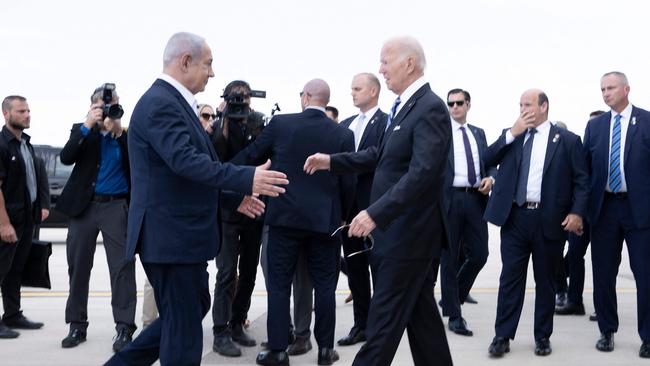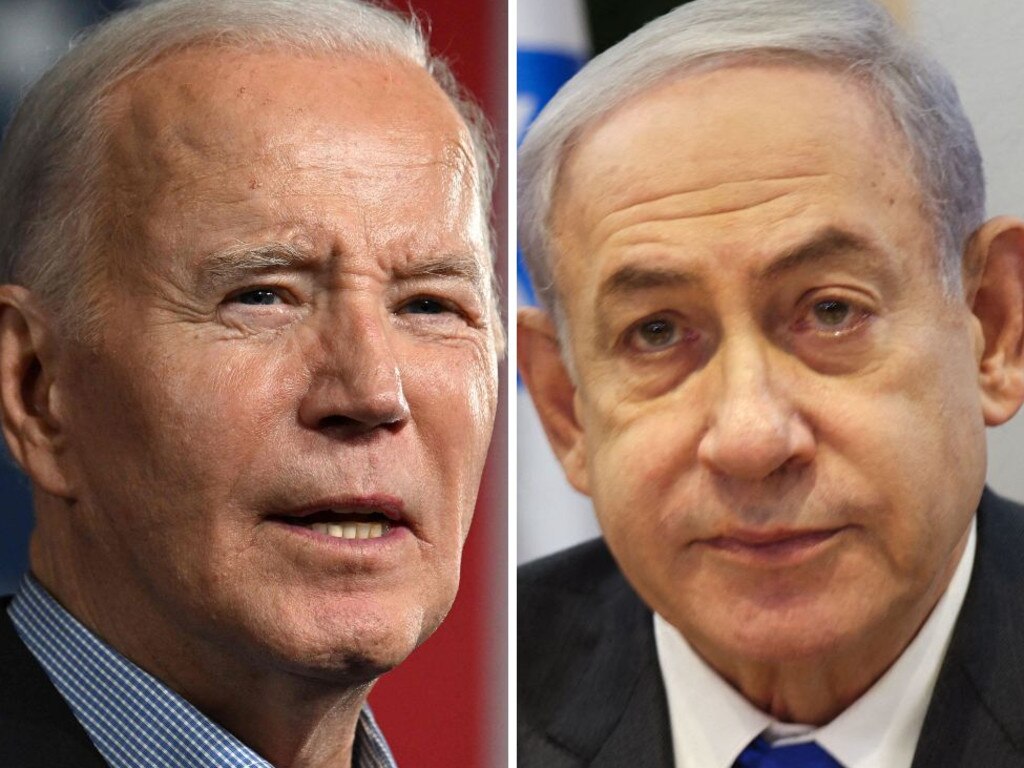The joke around Jerusalem is that while Mr. Biden once worked to help Israel after Oct. 7, he’s now working on the “two-state solution”: Michigan and Nevada. Israelis notice that the President rarely speaks of defeating Hamas anymore. Instead, he bashes Israel under the cover of bashing its Prime Minister.
This dance is Mr. Biden’s way of catering to the anti-Israel left without alienating the bulk of US voters who would find it unconscionable to turn on the Israeli people in wartime. What Henry Kissinger once said about Israel having no foreign policy, only domestic politics, Israelis are now saying about America. How else to explain Mr. Biden’s “red line” on Rafah, Hamas’s final stronghold?

Mr Netanyahu says, “You cannot say you support Israel’s goal of destroying Hamas and then oppose Israel when it takes the actions necessary to achieve that goal.” To leave Hamas in power in Rafah is to lose the war, and to replace Hamas with Fatah is to lose the peace. That’s an Israeli consensus, not “Bibi.”
Israeli officials say the U.S. military understands that Rafah must fall, but Biden officials don’t. White House national security adviser Jake Sullivan said Monday that “our position is that Hamas should not be allowed a safe haven in Rafah or anywhere else, but a major ground operation there would be a mistake.” Yet none of their political solutions for Gaza can succeed if Hamas battalions remain intact. There will be no politics if Hamas can put bullets in the heads of its Palestinian rivals.

To condemn Israel, Mr. Biden trots out the Hamas figure of more than 30,000 casualties in Gaza. Why doesn’t he mention that Israel says more than 13,000 of them were Hamas fighters? The resulting combatant-to-civilian casualty ratio of around 1 to 1.3 attests to Israeli accuracy and restraint, but that isn’t what they want to hear in Dearborn, Mich.
Last Monday’s release of a U.S. intelligence assessment casting doubt on the political viability of Mr. Netanyahu’s wartime leadership and predicting “large protests” against him was highly unusual. That’s how the U.S. once treated enemy dictatorships, not allied democracies.
Mr Biden has also endorsed Sen. Chuck Schumer’s extraordinary declaration last week that Israelis must depose the elected Mr. Netanyahu. Other Democrats are piling on.

Even more serious are delays in U.S. weapons transfers, leaked threats to cut off arms, and sotto voce Biden Administration efforts to discourage other countries from exporting weapons to Jerusalem. Ammunition supplies are a major concern, but Israel’s existential nerve has been touched, and it doesn’t need a timid Biden Administration to give it the green light on Rafah. Israel is now producing more of its own munitions, and the mood is that it will fight with its fingernails if it has to.
Mr Netanyahu doesn’t treat the U.S. as an unapproachable black box, which spits out a presidential policy and that’s final. He knows U.S. public opinion can be influenced to constrain the President’s power. If Mr. Biden thinks he’s the only one with leverage here, in advance of a U.S. election, he’s wrong.
Behind this spat is the dawning of knowledge in Israel that perhaps the U.S. can’t be relied on. As a Thursday column in the Yediot Ahronot newspaper notes, “Even if the radical wing does not take over, it is already a permanent force that no Democratic Party leader can ignore.”
There is more hope in Israel for a Trump Administration, but also wariness. For now the Republicans who would abandon Ukraine still speak up for Israel. Will that always be true?
At present the U.S. doesn’t appear willing to help Ukraine stave off defeat or Israel clinch victory. The world is watching, and the key for the Middle East isn’t to see that Israel can compromise with the Palestinians, but that it can carry U.S. support all the way to victory against Iran-backed terrorism.








Israeli Prime Minister Benjamin Netanyahu said on Sunday that “no international pressure will stop us from realising all of the goals of the war: Eliminating Hamas, freeing all of our hostages and ensuring that Gaza never again constitutes a threat to Israel.” That this is interpreted as a challenge to President Biden speaks volumes about the shift in U.S. policy toward Israel.